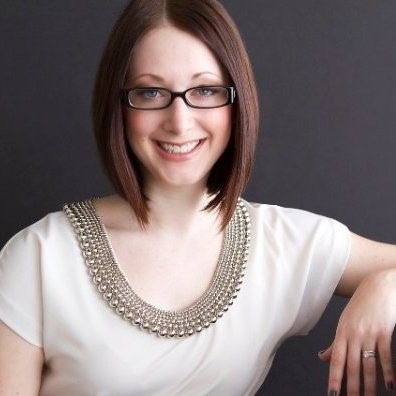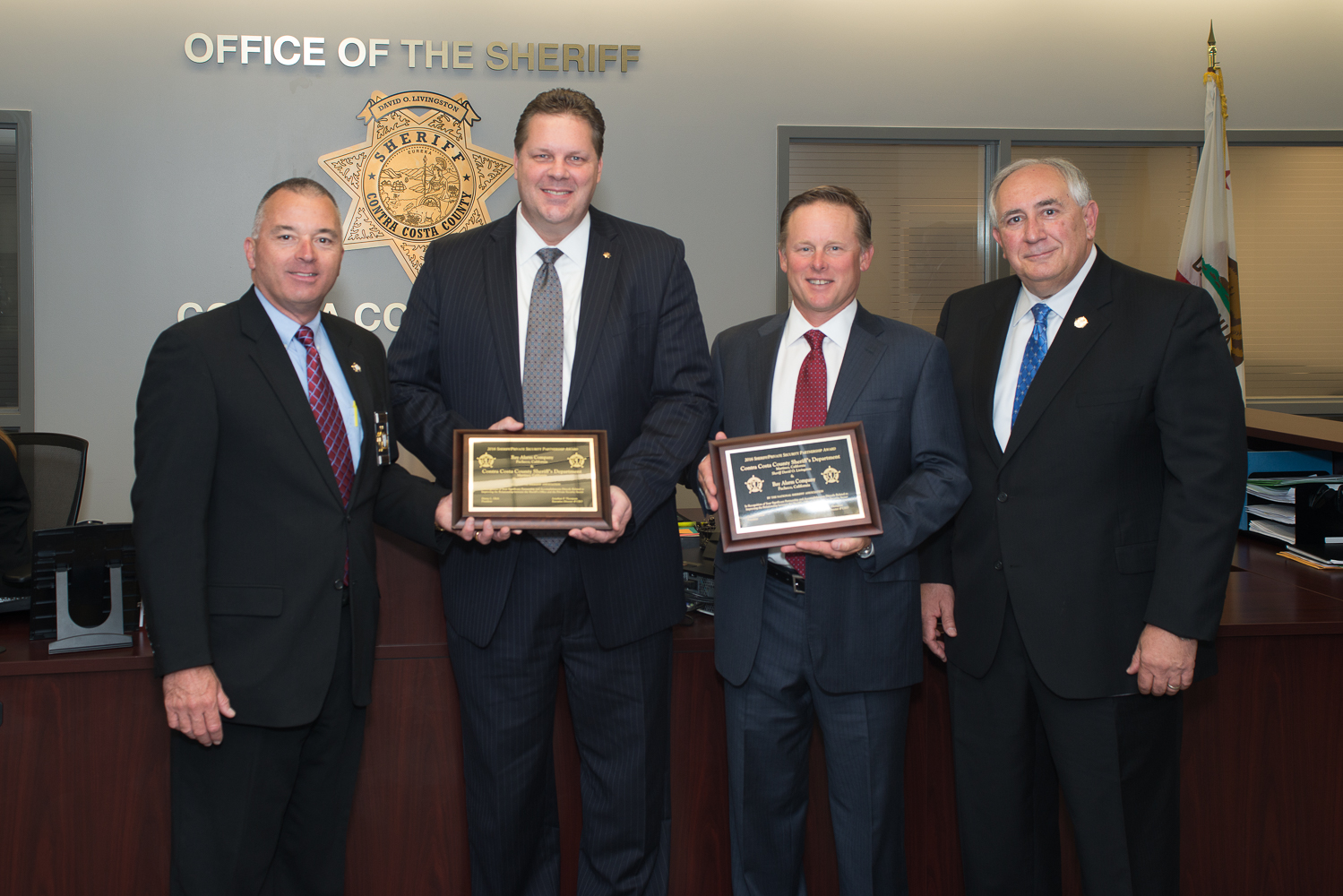How to Be a Bankable Leader: Interview with CSAA Annual Meeting Keynote Speaker Tasha Eurich
 CSAA is pleased to present Dr. Tasha Eurich, keynote speaker at the upcoming Annual Meeting in Marco Island, FL. “Tasha Eurich understands the importance of our industry. She and her family have been devoted alarm users for more than 30 years,” says Security Central, Inc. (Centennial, CO) President Jordan Jackson. “Her personal security experiences blended with her professional leadership expertise make her the perfect keynote speaker for this year’s conference. We have been utilizing the leadership principles she shares in her fantastic book Bankable Leadership, and what a difference it has made! Don’t miss your opportunity to transform your business with Tasha Eurich’s intriguing insights into leadership, business, and security!”
CSAA is pleased to present Dr. Tasha Eurich, keynote speaker at the upcoming Annual Meeting in Marco Island, FL. “Tasha Eurich understands the importance of our industry. She and her family have been devoted alarm users for more than 30 years,” says Security Central, Inc. (Centennial, CO) President Jordan Jackson. “Her personal security experiences blended with her professional leadership expertise make her the perfect keynote speaker for this year’s conference. We have been utilizing the leadership principles she shares in her fantastic book Bankable Leadership, and what a difference it has made! Don’t miss your opportunity to transform your business with Tasha Eurich’s intriguing insights into leadership, business, and security!”
Read on to find out what you can learn from Dr. Eurich in Marco Island in October, and register now for the CSAA Annual Meeting!
CSAA: So just what is a “bankable leader”?
Eurich: As an organizational psychologist, I’ve devoted the last 15 years of my life to making bosses better—from start-ups to the Fortune 100, and in almost every  industry. And no matter their level or position or business, there’s one common denominator that all leaders face: the tension between engaging and retaining their people and driving results for their business.
industry. And no matter their level or position or business, there’s one common denominator that all leaders face: the tension between engaging and retaining their people and driving results for their business.
Bankable Leaders, put simply, successfully manage the tension between people and results. And even though the best leaders do both, this balancing act is easier said than done. Most leaders tend to favor one over the other: some favor the people side—what I call the Cool Parent leaders—who are so focused on making sure everyone’s happy and that everyone likes them that nobody gets anything done. But even more fall on the other side, favoring results—the Trail of Dead Bodies leaders—who focus on outcomes at all costs. And though they might produce short term results, it’s not a matter of if their results will crumble but when. My belief, supported by decades of academic research—is that not only are most leaders out of balance, but they rarely know that this is the case!
CSAA: Tell CSAA members how you came to be interested in helping leaders.
Eurich: My purpose in life is to help leaders become more successful and self-aware, and in so doing, create value for their employees, customers and shareholders. When I was a child, shortly after my parents’ divorce, my mother started the first business in the country that trained and placed nannies in the homes of single parent and dual paycheck families. My mom would often take me to the office with her, where I watched her solve problems, coach employees, and communicate her vision. Even at a young age, what she had accomplished wasn’t lost on me. Not only was she supporting our family, she was supporting the families of the 25 people who worked for her.
Thus began my lifelong leadership obsession, which eventually led me to seek my doctorate in organizational psychology. Over the last 15 years, I’ve studied and applied the scientific principles of human behavior to help leaders and companies succeed. At its most basic level, my work is about helping leaders learn the skills they need to be successful at work (or, as a client of mine recently quipped, “Leadership is my Everest, and you are my Sherpa”). I’ve worked with people at all levels, in most industries, all around the world: from family businesses to the Fortune 100; from salespeople to engineers; from frontline leaders to CEOs.
CSAA: What can CSAA Annual Meeting participants expect from your session, “Bankable Leadership?”
Eurich: We will answer three general questions. First, what are my personal preferences as a leader between people and results? Second, what does that mean for the engagement and performance of my employees, the happiness of my customers and the success of my business? Third, what are a few actionable strategies I can use to accelerate my business goals through my leadership (not just my own, but also through the leaders who report to me)?
CSAA: Can you share a sneak preview of a data point that you use to help leaders evaluate themselves? Or some finding about leadership that you find particularly interesting/illuminating?
Something rather amusing that I often hear is that “leadership is a soft skill.” To be blunt, that’s just plain wrong and there have been decades of empirical research showing just how wrong it is.
One of my favorite studies looked at over 30,000 leaders and showed that leadership has a direct economic impact on the bottom line. Specifically, the bottom ten percent of leaders had (on average) $1.2 million of net losses in their functional area while the top ten percent showed (on average) $4.5 million in net profit! There is also a direct, causal link between leadership effectiveness and employee and customer satisfaction.
But in spite of this powerful impact, most organizations do precious little to prepare their leaders to lead, and as a result, 50 percent of leaders are ineffective. If executives aren’t closely tracking and growing the leadership effectiveness within organizations, they’re likely suffering more for it than they realize.
CSAA: What is something you have found really surprising in your work with leaders over the last 15 years?
Eurich: Especially over the last five or so years, there’s been a lot of talk about the “great person” view of leadership—that is, that great leaders are born with more charisma, or vision, or skill than others. But psychologists have known for almost 80 years that leadership isn’t about traits—it’s about skills. Why is this distinction important? Because it means that leadership is largely learnable, no matter what your style or personality. In our session, you’ll learn why 96 percent of leaders can dramatically improve their effectiveness (and why the remaining 4 percent can’t).
CSAA: You’ve mentioned that you have an alarm system for a long time. Bet you have an alarm story to share!
Eurich: Some might call my family paranoid, but we prefer the term “security conscious” (or, for CSAA purposes you can think of us as “forever customers”). My family and I have been proud Security Central customers for more than 30 years. And not only have Jordan Jackson and his team kept us safe in by our count more than ten houses, they have treated us as part of their family. Our relationship with Jordan and his team goes far beyond just business—he and the entire company truly care about our safety and well-being. I couldn’t be prouder to be addressing Jordan’s colleagues this fall!
CSAA: Tell us something about yourself that drives or influences the way you do business.
Eurich: Before I decided on a career in psychology, I was a professional actor and a classically trained singer. As a double theater and psychology major in college, then, I had quite a fork in the road to navigate. Of course, I chose psychology, not just for the inspirational reasons I mentioned earlier in this interview, but also because I wanted to, you know, have health insurance and make a livable wage. Not a day goes by that I don’t miss theater, but there isn’t anything in the world I’d rather be doing than what I’m doing now.
CSAA: What do you hope CSAA members will take away from your presentation?
First and foremost, I want folks to leave with a no nonsense strategy to improve their leadership effectiveness when they get back to work: both to accept their current reality as well as a few new things to try to accelerate the performance of their employees and their business. Just as importantly, I hope that they feel a sense of excitement and inspiration about what it will mean if they do.



![IMG_1747[1]](https://themonitoringassociation.files.wordpress.com/2016/08/img_17471.jpg)







